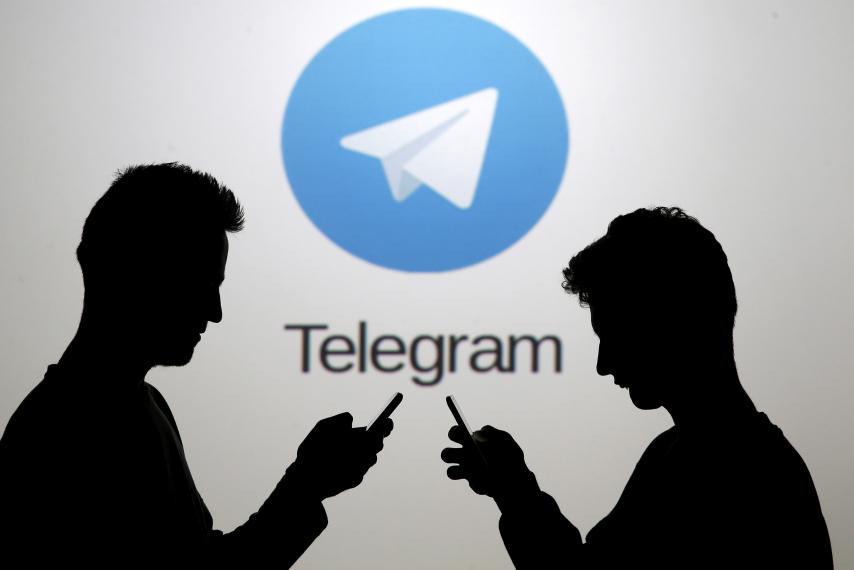Iranian authorities are planning to replace the popular messaging app Telegram with a domestic one, and then block Telegram, while Russia’s telecoms watchdog has asked Russia’s courts to block the same app.
Yet Iranian President Hassan Rouhani is pushing back against the move. In a meeting with ministers, MPs and governors on April 3, he said that “the goal of creating and enhancing Iranian software and messaging apps should not be blocking access to other apps, but the aim should be the elimination of monopolies.”
On March 31, referring to the government’s decision to block the app, the chairman for the Committee for Foreign Policy and National Security of the Iranian parliament, Alaeddin Boroujerdi, said, “This was a decision made at the highest levels, and Telegram will be replaced by a domestic app,” Iran’s Mehr news agency reported.
Boroujerdi said that Telegram played a destructive role during last year's riots in Iranian cities, and that the decision to ban the app and replace it was being made for the sake of the country’s national security.
According to the Iranian media, an Iranian alternative to the popular messaging app Telegram, “Soroush” will be launched by April 20.
On April 1, in a reference to the reports about the blocking of Telegram, Iranian Minister of Information and Communications Technology Mohammad Javad Jahromi said that “the government is committed to the promises it gave to the people and will pursue these promises.”
Telegram is highly popular among Iranians as it has more than 40 million Iranian subscribers. The Iranian government believes that a series of protests in late December and early January of this year were organized through it.
On January 13, Iran lifted restrictions on Telegram, after it had been shut down “in order to prevent activities of anti-revolution rioters” since the beginning of the riots.
Iran’s Caspian region neighbor Russia seems to be following suit.
On April 6, the Russian Federal Service for Supervision of Communications, Information Technologies and Mass Media filed a lawsuit seeking to block the Telegram, for failing to act on an official request to furnish the keys in order to decrypt user messages within the prescribed time frame.
The Russian security service FSB demands it get encryption keys from the app, but the company’s lawyer Pavel Chikov notified Roskomnadzor that it is technically impossible for it to disclose its source codes to Russia’s Federal Security Services (FSB).
Telegram was fined in October 2017 for not providing the FSB with the encrypted conversations of two suspects linked to the deadly metro bombing on April 3, 2017 in St. Petersburg.
Starting from 2018, companies on the Roskomnadzor register must also store all the data of Russian users inside the country, according to anti-terror legislation which was passed in June 2016.
Telegram has attracted over 200 million users since its launch in 2013, where people exchange messages, photos and videos.







 President Ilham Aliyev shed light on the evolving contours of the peace process with Armenia during an international conference in Baku this week. ...
President Ilham Aliyev shed light on the evolving contours of the peace process with Armenia during an international conference in Baku this week. ...
 Azerbaijan and Armenia started the process of demarcation of their border on Tuesday, with the installation of the first border markers based on ge...
Azerbaijan and Armenia started the process of demarcation of their border on Tuesday, with the installation of the first border markers based on ge...
 Armenian sappers commenced on Monday mine-clearance operations in the territories adjacent to the Saint Mary Church in village of Voskepar (Armenia...
Armenian sappers commenced on Monday mine-clearance operations in the territories adjacent to the Saint Mary Church in village of Voskepar (Armenia...
 Iran and Pakistan have signed eight cooperation documents in various fields, and agreed to strengthen ties to fight terrorism in the region.
Iran and Pakistan have signed eight cooperation documents in various fields, and agreed to strengthen ties to fight terrorism in the region.



